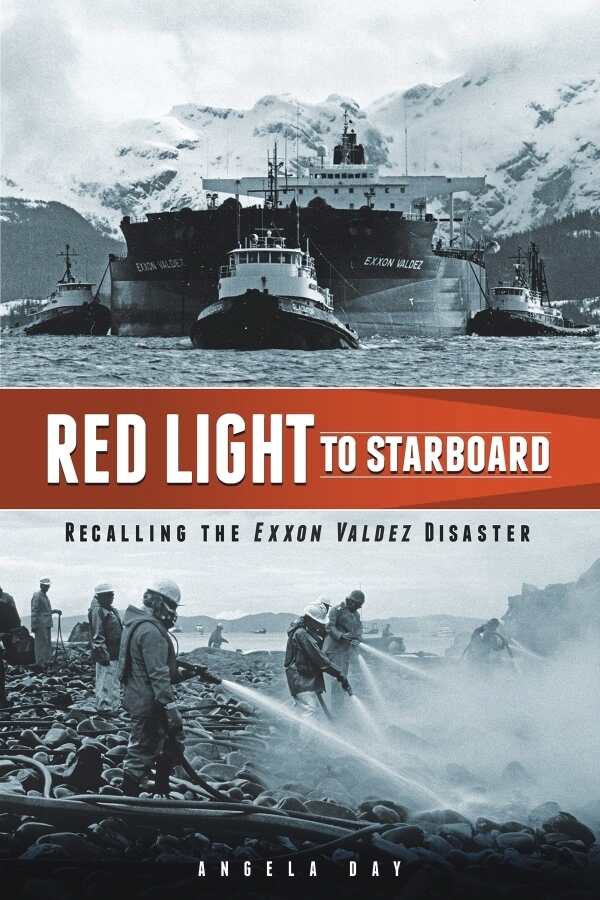Red Light to Starboard
Recalling the Exxon Valdez Disaster
- 2014 INDIES Winner
- Silver, History (Adult Nonfiction)
- 2014 INDIES Winner
- Bronze, Ecology & Environment (Adult Nonfiction)
Day is superb at weaving together political and business conflicts pertaining to oil spills and personal stories of those who live in areas in danger of spills.
Angela Day’s Red Light to Starboard: Recalling the Exxon Valdez Disaster, appearing on the twenty-fifth anniversary of the oil spill in Prince William Sound in Alaska, is a work of love and thorough investigative journalism, delivered with the objectivity of a seasoned analyst.
Day tells the story of how the supertanker Exxon Valdez ran aground on Bligh Reef in March 1989 and began leaking her cargo of fifty-three million gallons of crude oil into the pristine waters of Prince William Sound at the rate of 14,000 gallons a minute. Day chronicles the personal, environmental, legislative, and judicial response to this tragedy.
A doctoral candidate in political science at the University of Washington, Day has benefited from access to the official notes and transcripts of public meetings held in Alaska and Washington, DC, and elsewhere, as well as notes from interviews with many of the significant players.
Day’s thesis is buttressed by the lessons learned from the Exxon Valdez disaster. First, the close relation of the regulators with the industry it was supposed to regulate compromised the system designed to prevent such a disaster. This was compounded, according to Day, by the disregard the oil industry had for environmental concerns. Day quotes an Exxon representative saying, as he was pushing for the necessary permits to ship oil out of the Port of Valdez, “I don’t care if every goddamn fish dies, get that permit in two weeks.” Second, subsequent litigation was unable to sufficiently compensate the fishermen and other businesspeople for their losses, although the plaintiff fishermen and related parties prevailed in court after several years of expensive litigation.
There is an abundance of complex data and circumstances involved in telling this story, and Day does a superb job of weaving in the history of the fishermen and the oil industry in Alaska. She tells her story partly from the perspective of her husband, Bobby Day, who grew up in the Prince William Sound area and whose family remains deeply involved in the fishing industry there. That Day is able to develop this connection to her advantage without losing her judgment is a tribute to her abilities as a researcher and writer.
Reviewed by
John Senger
Disclosure: This article is not an endorsement, but a review. The publisher of this book provided free copies of the book to have their book reviewed by a professional reviewer. No fee was paid by the publisher for this review. Foreword Reviews only recommends books that we love. Foreword Magazine, Inc. is disclosing this in accordance with the Federal Trade Commission’s 16 CFR, Part 255.

